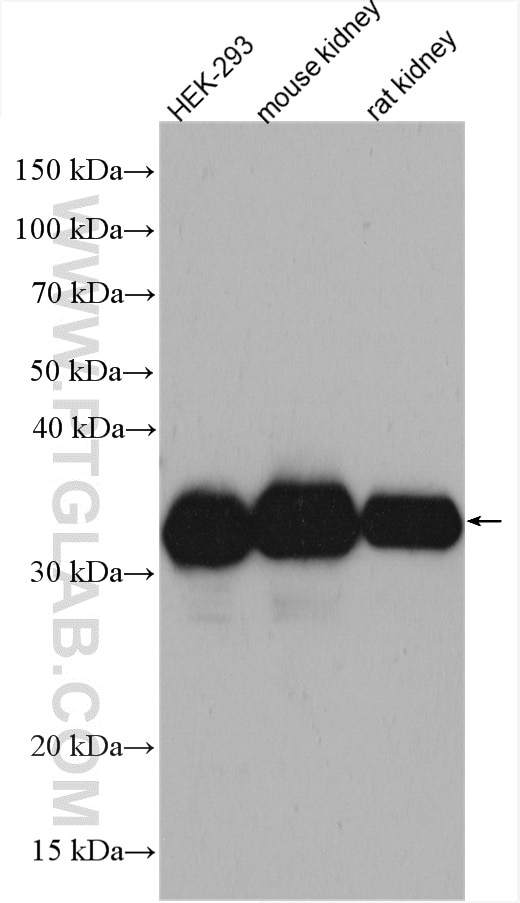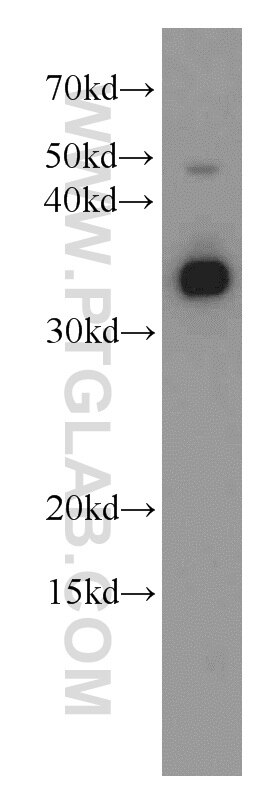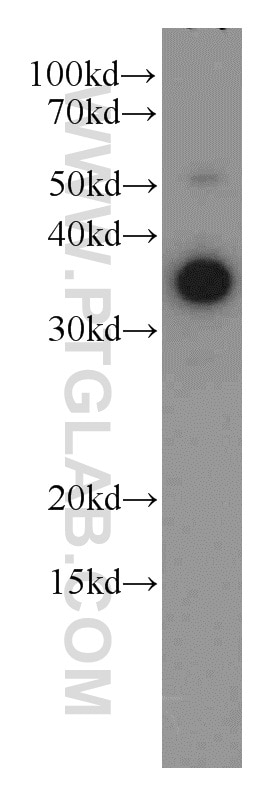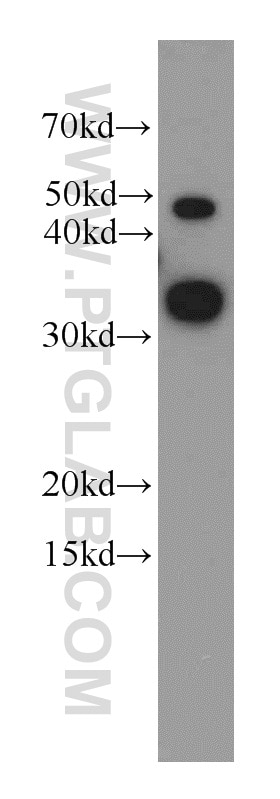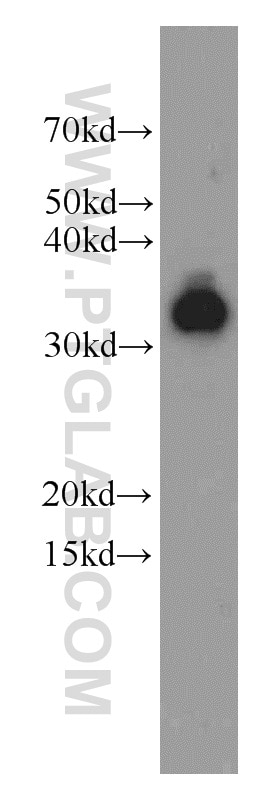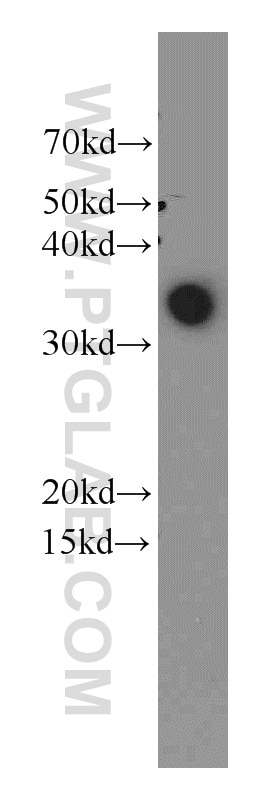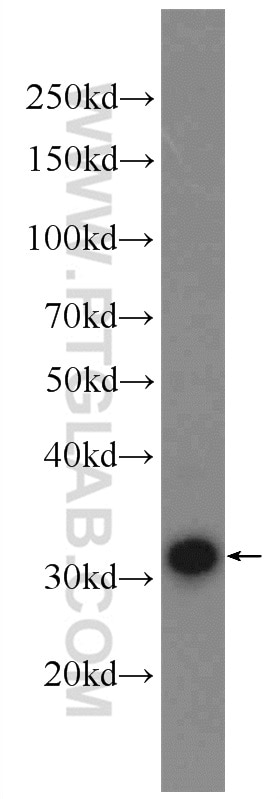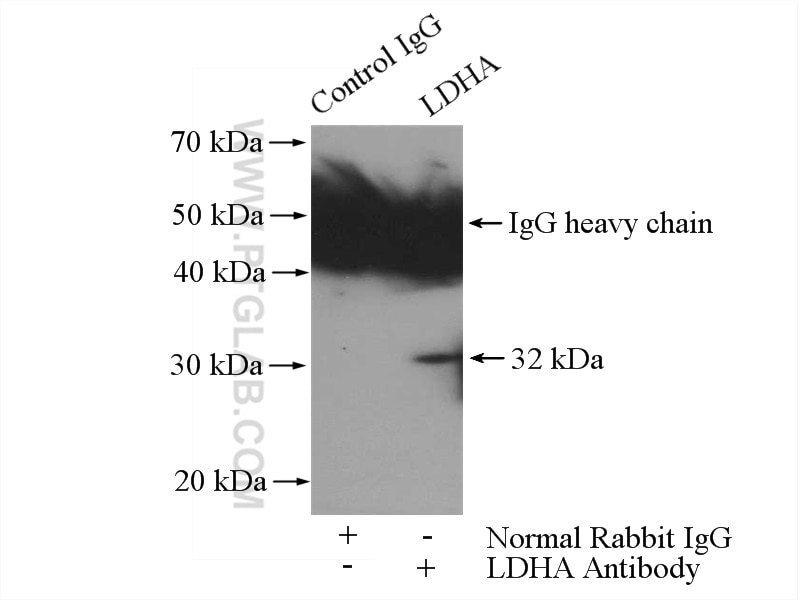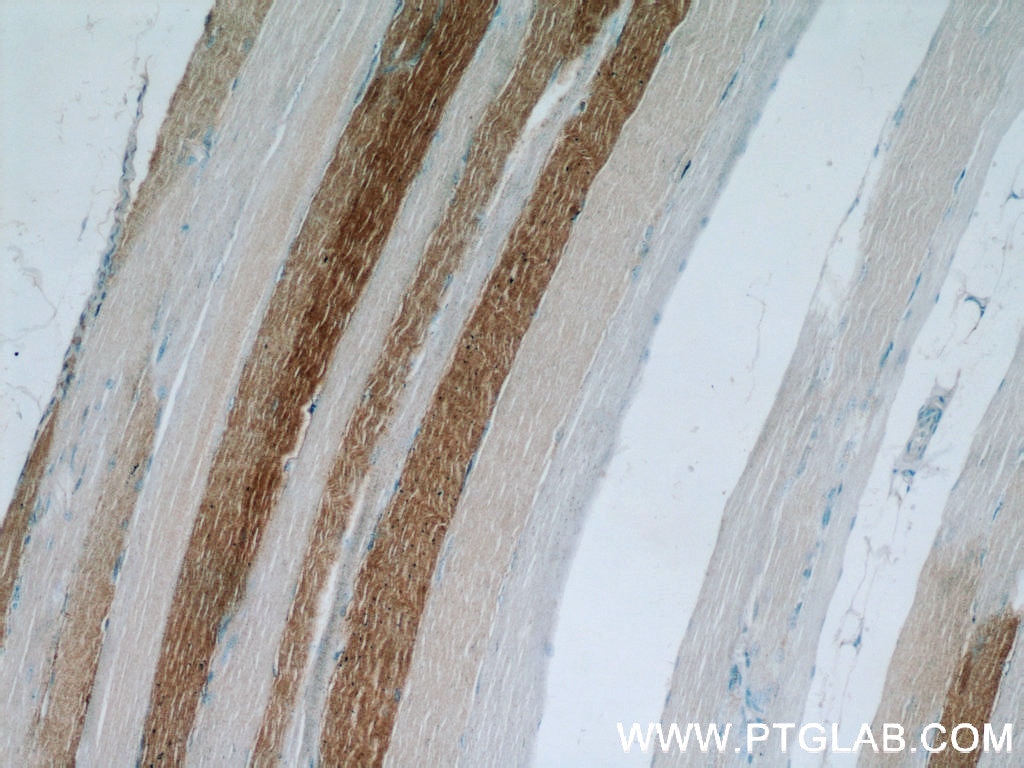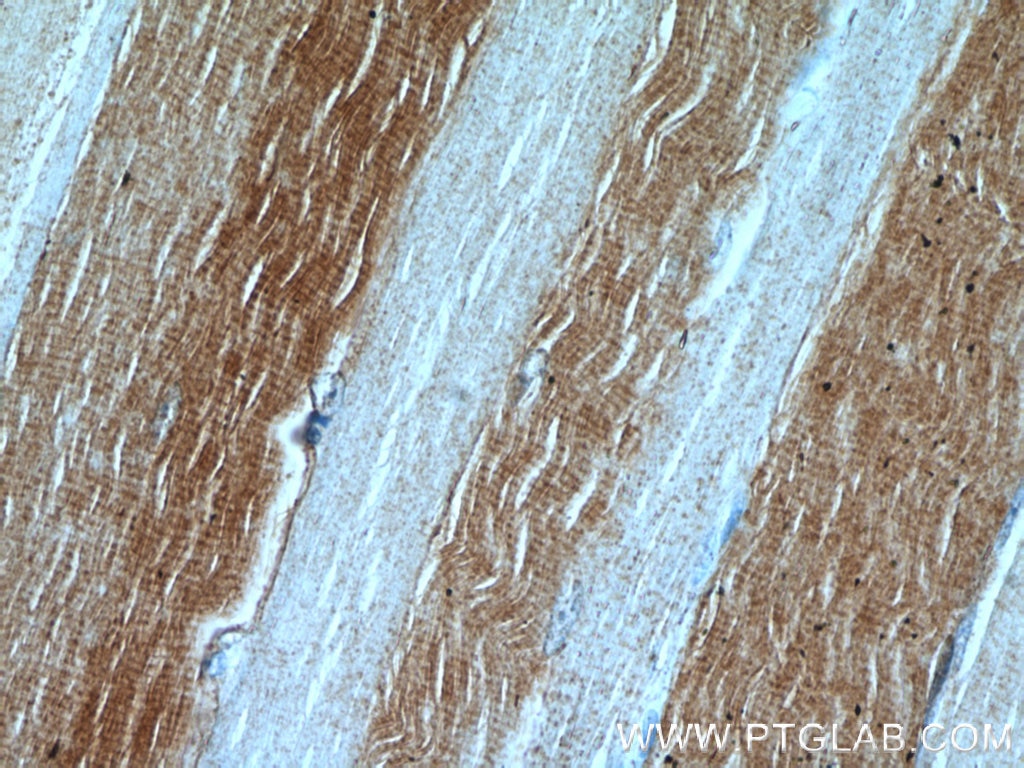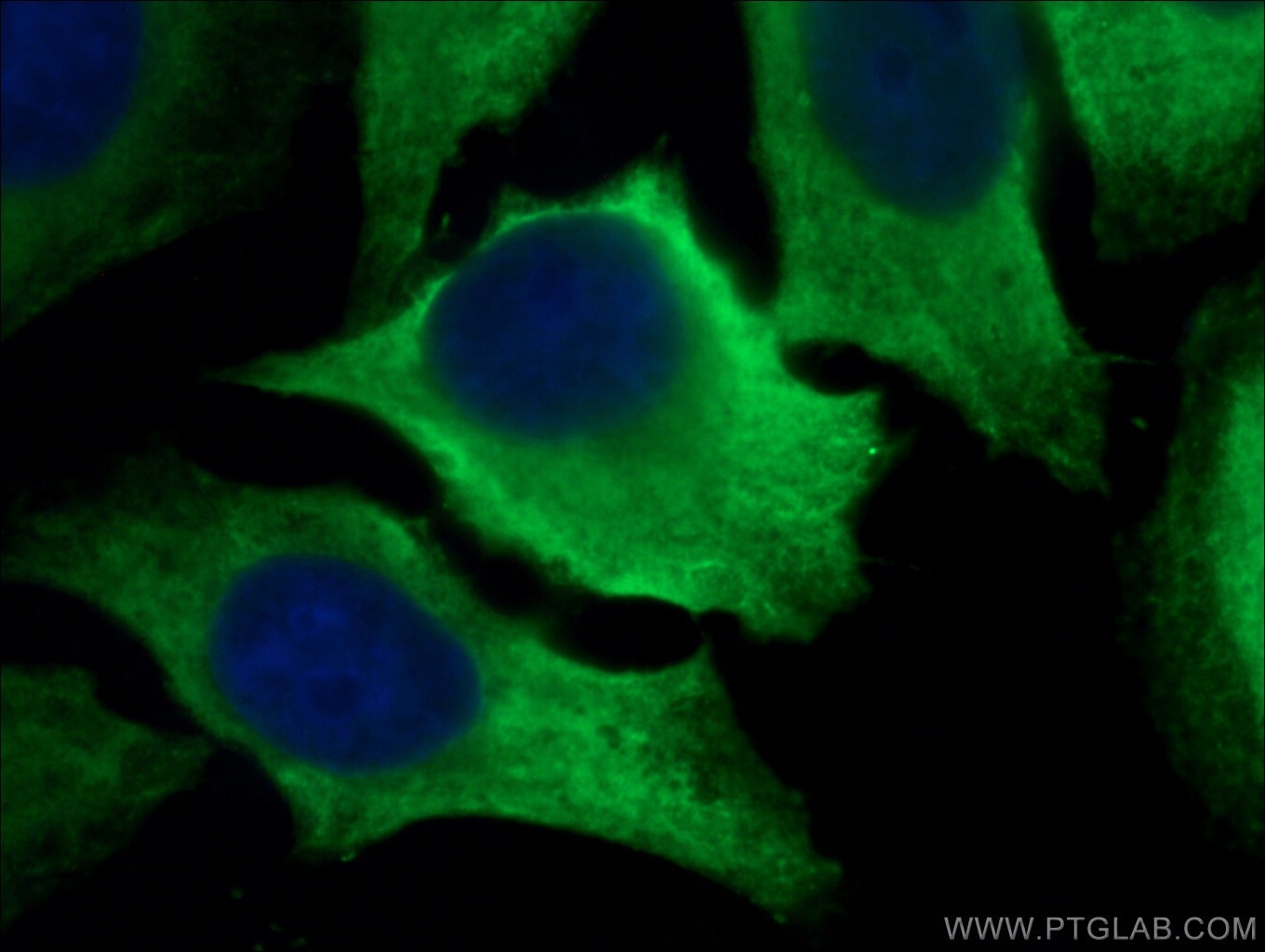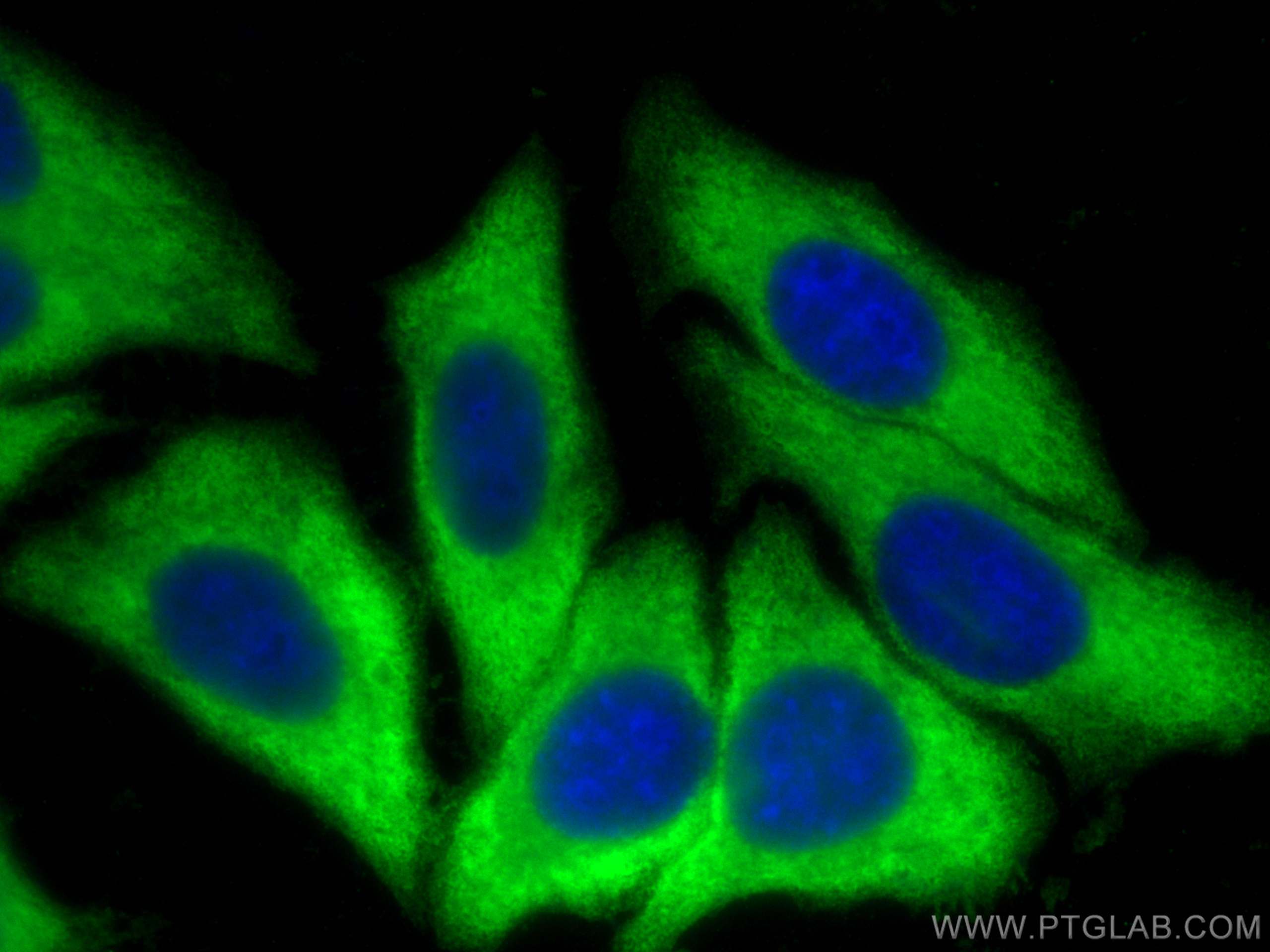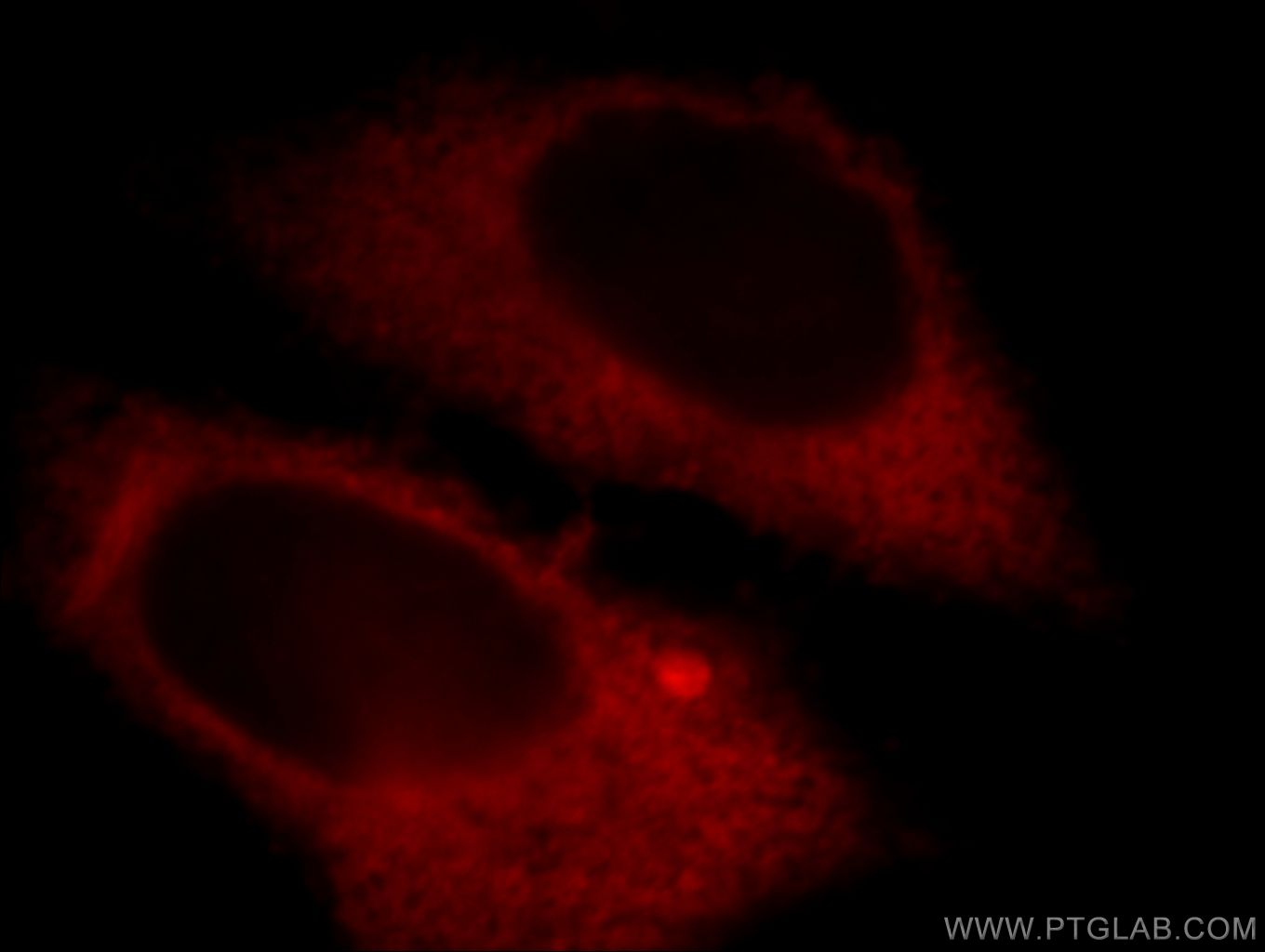- Phare
- Validé par KD/KO
Anticorps Polyclonal de lapin anti-LDHA
LDHA Polyclonal Antibody for WB, IP, IF, IHC, ELISA
Hôte / Isotype
Lapin / IgG
Réactivité testée
Humain, rat, souris et plus (2)
Applications
WB, IHC, IF/ICC, IP, ELISA
Conjugaison
Non conjugué
N° de cat : 21799-1-AP
Synonymes
Galerie de données de validation
Applications testées
| Résultats positifs en WB | cellules HEK-293, cellules A375, cellules HepG2, cellules MCF-7, cellules NIH/3T3, tissu testiculaire humain |
| Résultats positifs en IP | cellules HEK-293 |
| Résultats positifs en IHC | tissu de muscle squelettique humain il est suggéré de démasquer l'antigène avec un tampon de TE buffer pH 9.0; (*) À défaut, 'le démasquage de l'antigène peut être 'effectué avec un tampon citrate pH 6,0. |
| Résultats positifs en IF/ICC | cellules HepG2, |
Dilution recommandée
| Application | Dilution |
|---|---|
| Western Blot (WB) | WB : 1:5000-1:30000 |
| Immunoprécipitation (IP) | IP : 0.5-4.0 ug for 1.0-3.0 mg of total protein lysate |
| Immunohistochimie (IHC) | IHC : 1:20-1:200 |
| Immunofluorescence (IF)/ICC | IF/ICC : 1:50-1:500 |
| It is recommended that this reagent should be titrated in each testing system to obtain optimal results. | |
| Sample-dependent, check data in validation data gallery | |
Applications publiées
| KD/KO | See 1 publications below |
| WB | See 41 publications below |
| IHC | See 10 publications below |
| IF | See 3 publications below |
| IP | See 1 publications below |
Informations sur le produit
21799-1-AP cible LDHA dans les applications de WB, IHC, IF/ICC, IP, ELISA et montre une réactivité avec des échantillons Humain, rat, souris
| Réactivité | Humain, rat, souris |
| Réactivité citée | rat, Humain, porc, singe, souris |
| Hôte / Isotype | Lapin / IgG |
| Clonalité | Polyclonal |
| Type | Anticorps |
| Immunogène | LDHA Protéine recombinante Ag16703 |
| Nom complet | lactate dehydrogenase A |
| Masse moléculaire calculée | 332 aa, 37 kDa |
| Poids moléculaire observé | 32-37 kDa |
| Numéro d’acquisition GenBank | BC067223 |
| Symbole du gène | LDHA |
| Identification du gène (NCBI) | 3939 |
| Conjugaison | Non conjugué |
| Forme | Liquide |
| Méthode de purification | Purification par affinité contre l'antigène |
| Tampon de stockage | PBS avec azoture de sodium à 0,02 % et glycérol à 50 % pH 7,3 |
| Conditions de stockage | Stocker à -20°C. Stable pendant un an après l'expédition. L'aliquotage n'est pas nécessaire pour le stockage à -20oC Les 20ul contiennent 0,1% de BSA. |
Informations générales
Lactate dehydrogenase (LDH) is composed of A subunits predominate in skeletal muscle and B subunits are abundantly produced in brain and heart. The LDHA (lactate dehydrogenase A) and COPB1 (coatomer protein complex, subunit beta 1)genes, are involved in energy metabolism and protein transport processes. Both genes might play important roles in muscle development. It has some isoforms with the molecular mass of 27-40 kDa and can form a homotetramer(PMID:11276087).
Protocole
| Product Specific Protocols | |
|---|---|
| WB protocol for LDHA antibody 21799-1-AP | Download protocol |
| IHC protocol for LDHA antibody 21799-1-AP | Download protocol |
| IF protocol for LDHA antibody 21799-1-AP | Download protocol |
| IP protocol for LDHA antibody 21799-1-AP | Download protocol |
| Standard Protocols | |
|---|---|
| Click here to view our Standard Protocols |
Publications
| Species | Application | Title |
|---|---|---|
Sci Transl Med Loss of miR-31-5p drives hematopoietic stem cell malignant transformation and restoration eliminates leukemia stem cells in mice. | ||
Mol Cell The long noncoding RNA glycoLINC assembles a lower glycolytic metabolon to promote glycolysis. | ||
Mol Cell Filamentous GLS1 promotes ROS-induced apoptosis upon glutamine deprivation via insufficient asparagine synthesis. | ||
Cancer Res HBXIP and LSD1 Scaffolded by lncRNA Hotair Mediate Transcriptional Activation by c-Myc. |
Avis
The reviews below have been submitted by verified Proteintech customers who received an incentive forproviding their feedback.
FH Manfred (Verified Customer) (05-30-2022) | This antibody worked perfectly at 1:1000 dilution. I preferred to do overnight incubation at 4 degrees.
|
